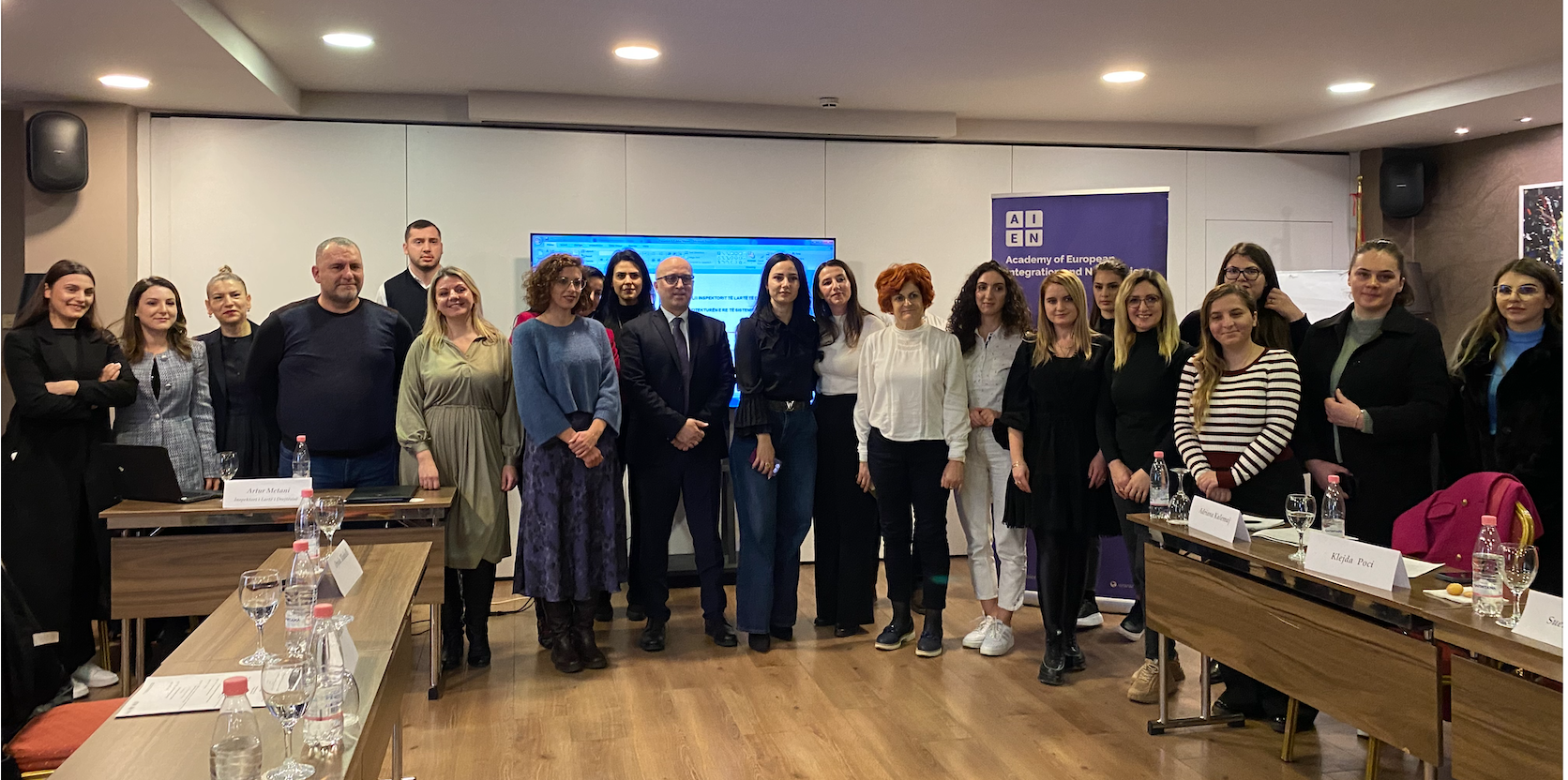The High Inspector of Justice held an open lecture with the participants of the Academy of European Integration and Negotiations, on the module “Independence and efficiency of the Justice System – reforms before and after accession”, within the “Rule of Law” edition.
Mr. Metani made a presentation of the role and functions of the High Inspector of Justice and answered questions about the institution he heads, the new justice system and public expectations.
The High Inspector of Justice underlined the importance of informing citizenry of the justice institutions but not only, because a lot has been said about the HIJ and other institutions, but very few of these people who talk, tend to read and understand the role of these institutions and this creates wrong premise from the very concept. “I hear references such as “new justice” for example. – said Mr. Metani. – In fact, there is a new system of justice, not “new justice”, because it is the same people who were part of another organizational system and now, they are part of a new system with more competences.
Responding to the interest of the participants on public expectations from justice and its institutions, Mr. Metani said that no one can be stopped from saying what they think. “Everyone has the right to express themselves, to say what they think about the work of the justice bodies. Our best defense is transparency and the simplicity and clarity of our decisions. So that they could be understandable and without terms that create equivocation, even for the common citizen. If the institutions are clear and transparent, everyone can see the difference in the quality of their work. No one can be stopped from saying what they think. The level then, of course, is related to everyone’s culture, formation and information. But each of us may have to speak through our own work.”
The interest of the participants, people employed in central and local institutions, in justice, in civil society organizations, universities, media and free professions, also focused on the magistrates demeanor, ethics, public perception in relation to reality.

